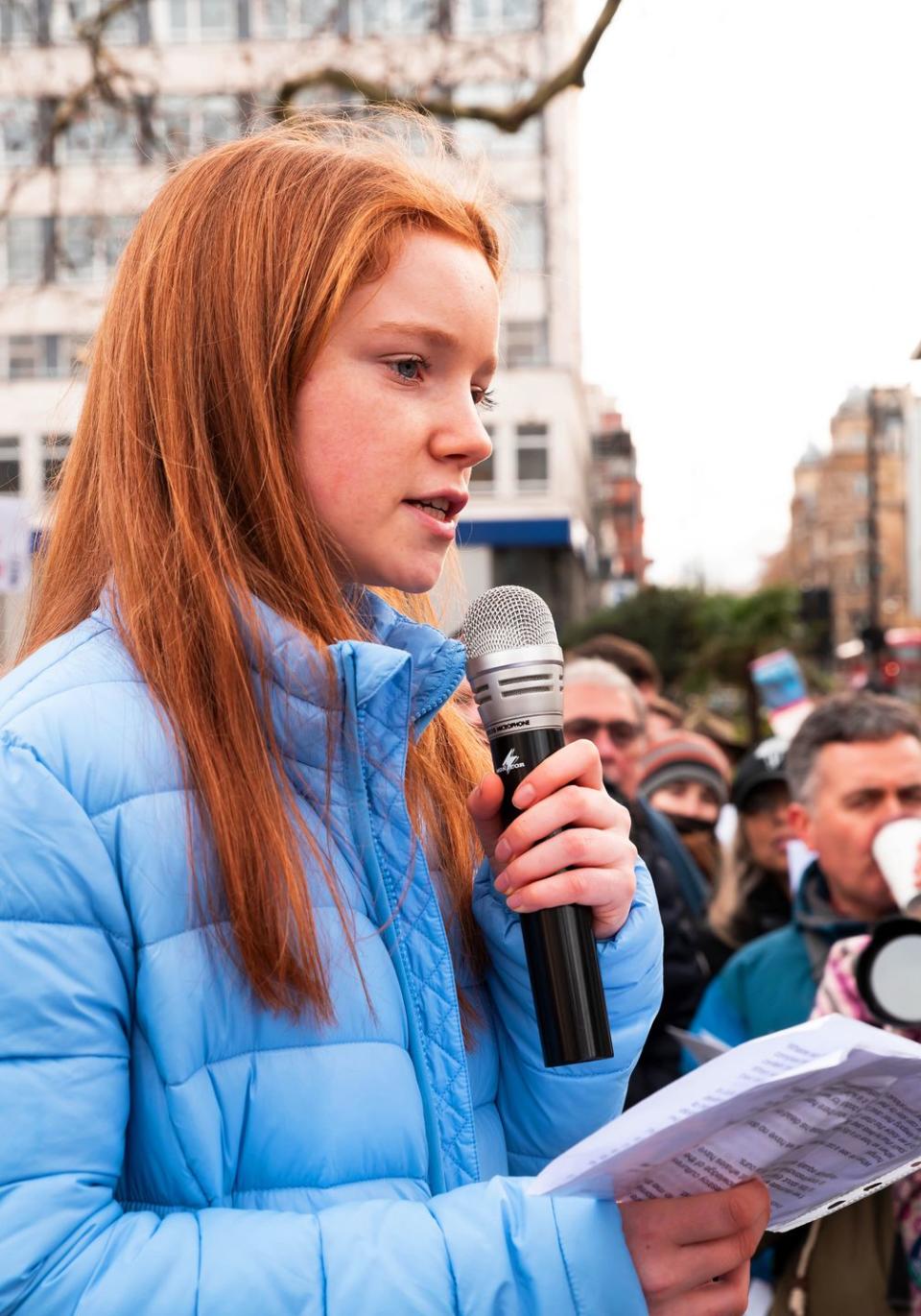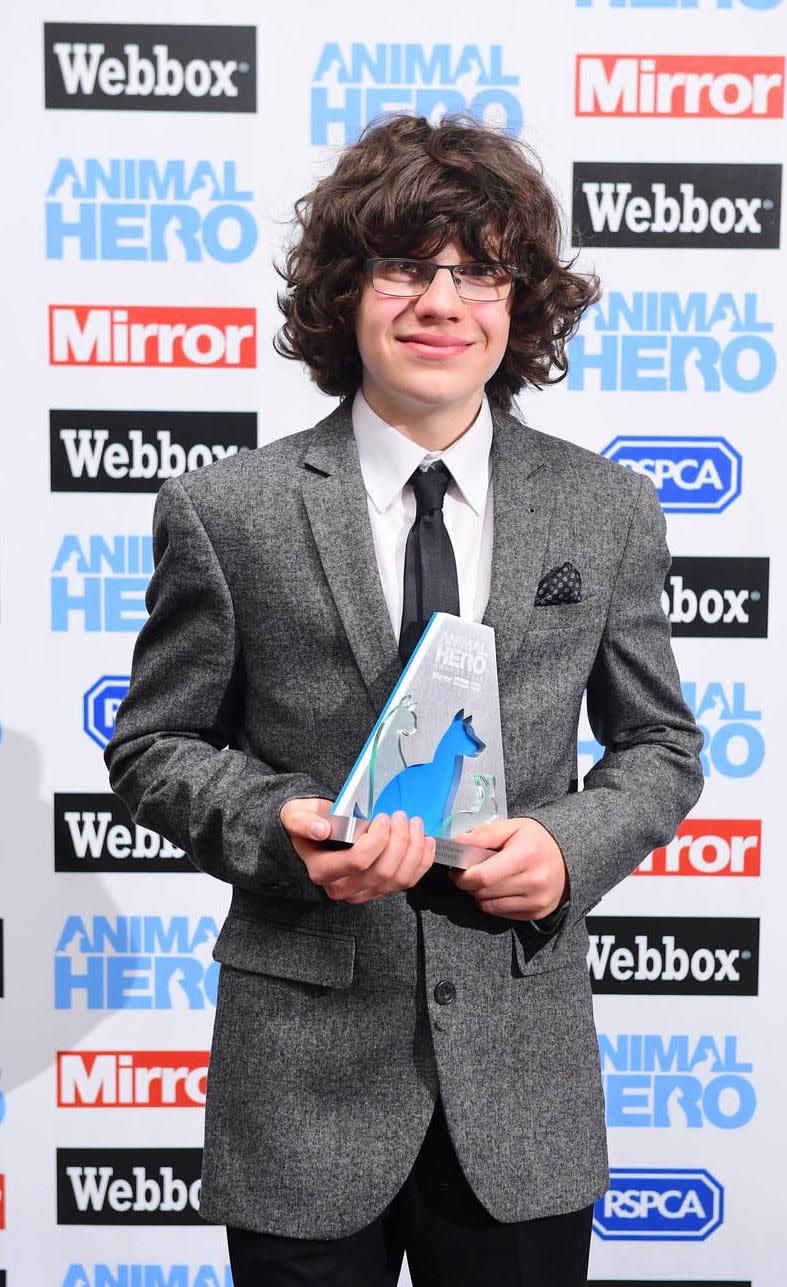3 teenage activists doing more for the planet than most adults

Last year, teenage climate change activist Greta Thunberg set the world ablaze with her proclamation that our "house is on fire" – referring to the fact that, according to leading scientists, we have only 12 years before the effects of climate change become irreversible.
In protest, Greta staged her first school strike and sat outside the Swedish parliament building, by herself, with a homemade sign. Her bold actions quickly inspired other children and a movement of school strikes swept across the globe – with children as young as five skipping classes to demand change before it’s too late.
Thanks to their gumption, activism is no longer the domain of just a few sandal-wearing obsessives – everybody is invited to join the fight. To celebrate them, Country Living speaks to three teenage activists making waves within the world of environmentalism, to find out how they started.
Meet Bella (@BellaLack)
At 15, Bella is already a prominent voice in the world of environmentalism – and something of an inspiration to the 150 thousand people who follow her on Twitter. A Youth Ambassador for The Born Free Foundation, her petition against the use of wild animals in UK circuses spurred a government ban.

How did you first get involved in conservation and the natural world?
"It was always my instinct to dig for worms and insects. I remember having a snail sanctuary in my room (which didn’t go down well with my parents). I began campaigning for wildlife protection was when I was 11, after watching a video about palm oil and its effect on orangutans. As I watched scenes of orphaned orangutans calling out for their mothers, I decided that I couldn’t sit back and accept it."
Why do you think many of us have lost awareness of the importance of nature?
"Almost every child has an innate fascination with wildlife. The reason that we are disassociated from the natural world now is because of the fast-paced world that we live in. There are always places to go and posts to like and people to call. It’s easy to overlook our reliance on nature when we don’t see how the products we buy and the food we eat is created, but it’s absolutely essential that this awareness is re-established in society. This needs to begin with young children fostering a love and respect for the natural world."
What are your hopes for the future?
"I really hope with the IPBES report, the climate strikes and the recent surge in governments declaring ecological emergencies, that change is happening now. We won’t wake up one day and suddenly be living in a sustainable world, it’s going to be a difficult and gradual upheaval that will require sacrifices and cooperation. But when we consider what’s at stake, it’s surely worth it. Although change has to happen at a governmental level, everyone must look at their lives and judge how they can reduce their personal impact – we each have a responsibility to ensure that we do as much as we can to leave a healthy and habitable home not only to future generations, but also to other creatures who we share this planet with."
Meet Felix
Felix Ottoway O Mahony may be 14-years-old, but having already attended meetings at Downing Street and made speeches at Westminster, his experience when it comes to activism far exceeds most adults’. He is a prolific member of Extinction Rebellion (XR), the controversial international movement that uses non-violent civil disobedience to raise awareness about the climate crisis and demand change.

How did you first get involved in activism?
"I come from an activist family, we’ve always discussed world events and attended protests. However, this is my first time in helping organise a movement."
When did you begin to realise the severity of the situation?
I’ve been aware of climate breakdown for as long as I can remember, but I only recently realised that the generations before me weren’t doing anything to fix the problem. In a way that’s when I truly realised the severity – we’re facing a climate crisis and world leaders are watching it happen, without doing anything to fix it."
What actions have you taken since joining XR?
"I was involved in the Heathrow protests: 1,000 police and international news came expecting mass disruption, but instead saw eight young people, including myself, holding a banner reading 'Are we the last generation?' on the road going into terminal two. This made national TV. I also attend the school strikes."
How do you balance all of this with your schooling?
"Juggling: doing homework while sitting in the middle of a roadblock. There’s no point studying and not fighting for my future but equally, if I spend all my time fighting for a future, and don’t get any qualifications to support that future, then I won’t be able to do the things I want to do with my life."
How has your life changed since undertaking activism?
"I’m more hopeful. A few months ago, if you asked me what my future would look like I would of said 'I’m not going to have one', but now I feel my future might still be achievable. There’s a saying that goes 'With action comes hope. If you are not hopeful act, because action will show you everything is possible' and I think that really applies to getting involved in activism."
Meet Dara, @NaturalistDara
Like Greta Thunburg, Dara, aged 15, has Asperger’s, which can cause him to experience sensory overload and anxiety – but nature, he says, miraculously helps him. At the age of 12, he set up a blog to document his curiosity and encourage others to appreciate wild spaces. Since then, he’s attended meetings at Downing Street and met Prince Charles, he even counts Chris Packham among his friends. His first book, Diary of a Young Naturalist, comes out next year.

How did you first get involved in conservation and the natural world?
"My parents say I’ve always been fascinated with nature; staring at the sky, pointing at birds, collecting feathers, stones and conkers. Fascination grew into curiosity, I started asking questions and reading everything I could. I started birdwatching and recording what I saw. Aged 12, I realised the extent nature was suffering, so I started campaigning for wildflower meadows and wilder spaces in our gardens. I later started public speaking about the need for changes in the curriculum and access to wild places for children."
Why do you think many of us have lost awareness of the importance of nature?
"A multitude of things: the disappearance of the nature table in classrooms, the fact that nature walks are becoming more controlled. We live in a very risk averse society. Add that to more traffic on the roads, advertising bombardment and lack of access to wild places, the plastic problem, litter and our fast-paced competitive world - that’s a heady cocktail of disconnect. Through my social media channels, I put names to things in nature – when you understand more about something, it means more to you."
How do you balance all of this work with your schooling?
"I’m happiest when doing meaningful things, I enjoy my school and love being challenged, I thrive on having many things to do. Helping nature is part of the fabric of my being, it’s natural and necessary to my happiness."
How do you remain hopeful despite all the negative reports?
"Keep taking action. Keep doing things – anything. You have to grow a thick skin and need to be pragmatic as environmental campaigning can be very disheartening and overwhelming. If I keep engaging in meaningful work, then I continue to have hope. I want to be a scientist when I’m older – working towards that now keeps me focused and enthusiastic.'
What advice would you give to someone who wants to take action but feels anxious?
"Start small. Start noticing the beauty around you - there is always somewhere to find it. Focus on one issue and try not to get overwhelmed. Share your joy and passion on social media and connect with other likeminded people. Get outdoors and experience the majesty of what we have left – ensure we don’t lose any more by loving it, appreciating it and sharing it."
Read more about the kids fighting climate change in the October issue of Country Living, out now. SUBSCRIBE HERE

Like this article? Sign up to our newsletter to get more articles like this delivered straight to your inbox.
You Might Also Like


